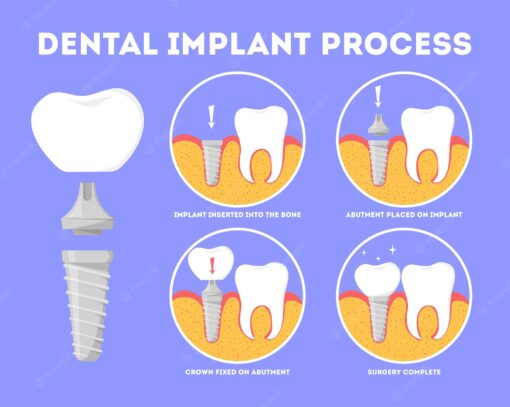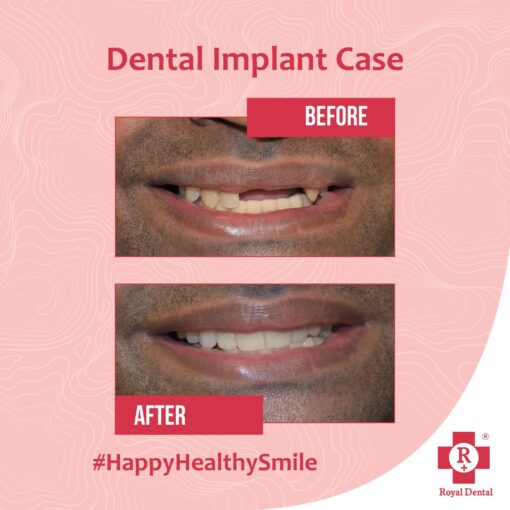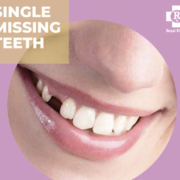It is important to know how you feel after dental implant surgery so that you can take the necessary precautions. As with any procedure, there could be some post-operative discomfort and bruising, but if your pain is more than what you would expect, then it could be an indication of something more severe. If the dentist has made a mistake or failed to complete the procedure in its entirety, then your pain and discomfort could be a sign that you need urgent medical attention. Have a conversation with your dentist about your post-operative care and follow their instructions to reduce the risk of complications. An effective post-operative routine also reduces the amount of time it takes for the implants to heal and integrate with your jaw bone.
It’s totally normal to feel some pain and discomfort after surgery when the numbing agents and dental sedation wear off. However, you will likely notice some pain, discomfort, swelling, bruising and inflammation by the end of the day. Some bleeding is also common for the first 24-48 hours after treatment.
What did the Dentist tell you?
As with any surgery, it is best to have a clear understanding of the procedure, the risks involved, the expected benefits and the time it will take to recover. Make sure you ask the dentist any questions that may arise — especially if you have any concerns about your health. If the dentist does not give you all the information you need, find another dentist who will. There are a few things you want to confirm before signing the dental implant surgery consent form.

First and foremost, you need to find out why the surgery is necessary. Not all patients require dental implants. Second, find out what the surgery entails and what the recovery process will look like. Third, you want to know what to expect after the surgery is completed. Fourth, you should find out what the expected cost of the procedure will be.
How do you feel right now?
Dental implant surgery is a delicate procedure that requires a lot of precision, precision that can be compromised if the patient is not in the best condition. To ensure that you are in optimal shape before the dental implant surgery, make sure to get plenty of rest and eat a healthy diet so that your body is well-rested and nourished.

On the day of the procedure, drink plenty of fluids so that you stay hydrated. Both fatigue and dehydration can increase the risk of complications during and after the dental implant surgery. If you are not in the best possible shape, there is a chance that you could experience more discomfort after dental implant surgery than usual.
Discomfort after dental implant surgery
As mentioned above, there could be some discomfort after dental implant surgery. But if the pain is more than what you would expect. Then it could be an indication of something more severe. To determine if your discomfort is a symptom of a problem, you have to understand what is normal and what is not. Generally, dental implant surgery is a relatively mild procedure with little to no pain.
There could be some brief moments of discomfort when the dentist is setting the implant posts into your jaw. But it shouldn’t be anything more than that. If you are experiencing a considerable amount of pain that extends beyond the time it takes for the posts to set. Then you could be experiencing signs of an infection, an allergic reaction, or a fracture in the jaw bone where the posts have been set.
Bruising after dental implant surgery
Bruising after dental implant surgery is a very common occurrence, especially when the incisions are being made. It is nothing to be concerned about and should go away within a few weeks. If the bruises don’t fade after two weeks or if they appear under your skin. Then it could be a sign of bleeding or an infection. If you are experiencing bruising, try to rest more and ask your dentist if there is anything you can do to reduce the swelling.

Unfortunately, there isn’t much you can do about swelling after dental implant surgery. Other than rest and drink plenty of fluids to stay hydrated. Elevating your head with a pillow while you sleep and taking ibuprofen or aspirin to reduce inflammation can reduce some of the swelling. But it is important to follow your dentist’s instructions. If you are experiencing swelling. There is a chance that your healing process could be slowed down. Which could result in the implant posts failing to integrate with the jaw bone.
Swelling after dental implant surgery
Swollen gums after dental implant surgery are a common occurrence. But it is important to note that it is completely normal. The swelling is due to the surgery, which results in an inflamed gums. Although the swelling should go down in a few days. It could take up to two weeks for your gums to fully heal.
The amount of swelling you experience after dental implant surgery is largely dependent on the location of the incisions and whether the doctor has used an infection-control protocol during the surgery. If the incisions are made in the gum. Then the swelling would be more intense than if the incisions had been made in your mouth.
Conclusion
Dental implant surgery is a complex procedure that can result in various degrees of discomfort and pain. Knowing what is normal after dental implant surgerY. And what is not can help you to identify potential issues and take the necessary precautions. It is important to follow your dentist’s instructions after the procedure to ensure a quick and successful recovery.







A good dentist make good impression. and the royal dental clinic is best. staff and doctors are very good.